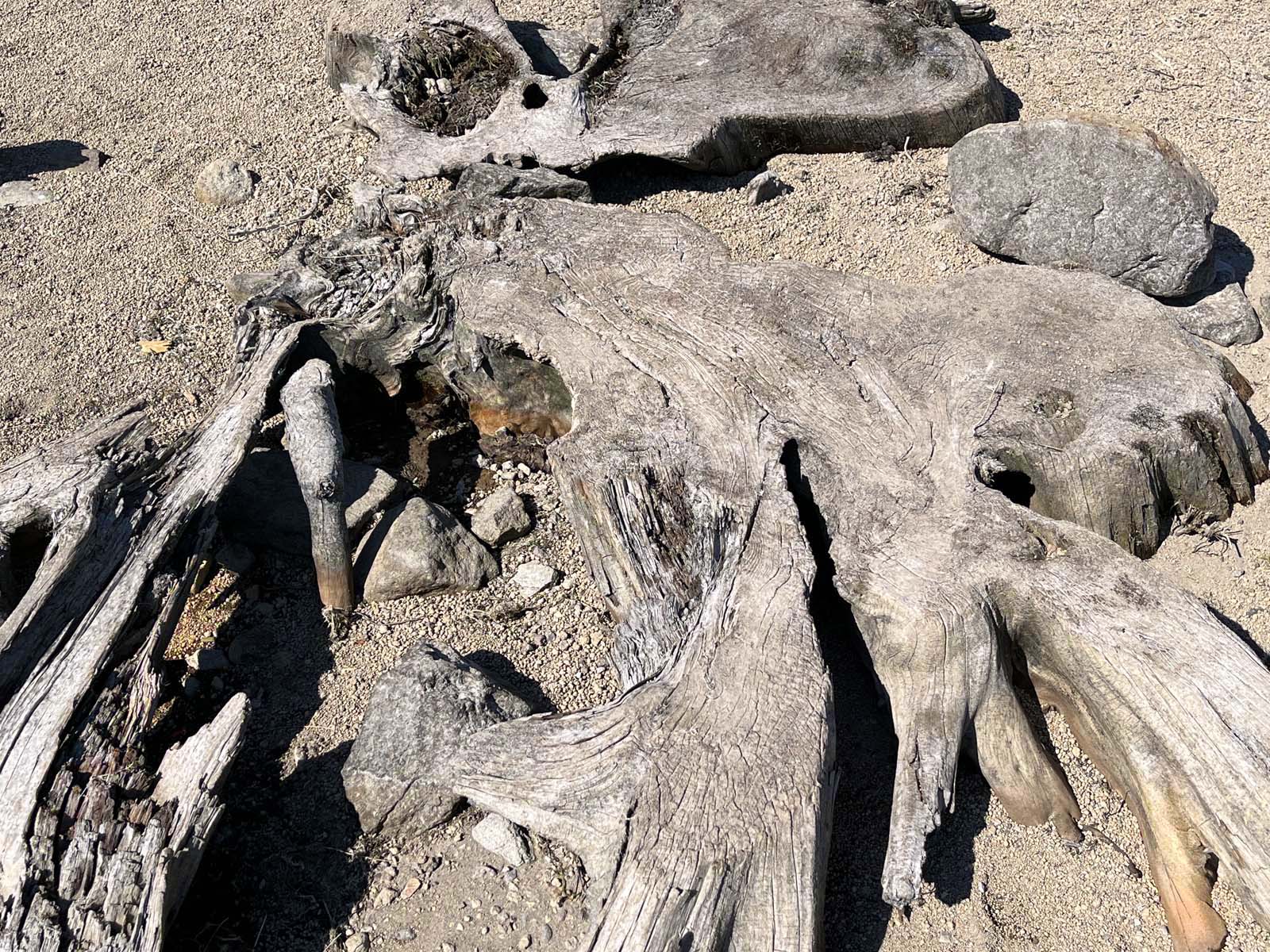“Ich will auch im Elend noch die Schönheit finden, denn die Schönheit ist es, die den Menschen Würde gibt. Es gibt immer Schönheit, immer.” – photographer Pierrot Men
(“I want to find beauty even in adversity, since it is beauty that confers dignity to human beings. There is always beauty, always.”)
Pierrot Men has been photographing in Madagascar for decades, and does indeed convey human strength in the depths of misery. I don’t necessarily agree with the first part of Men’s claim, however, since I believe dignity is completely independent of beauty, particularly since beauty is often defined within the context of a time or place. But I do believe it to be true that you can always find beauty.

I saw it when looking at the tree stumps exposed by drought-drained Detroit Lake, their skeletal forms so long submerged under water after the 1952 erection of the Detroit Dam along the North Santiam River in Oregon.
They were bleached to the shades of the surrounding earth, only the shadows from a glaring sun providing some 3-D information at times. But here and there some color popped, little signals of the life once held, not all completely calcified.



Beauty not linked to dignity. But beauty helping me to feel hopeful, which in turn helps to hold out.
As Octavia E. Butler said in the Parable of the Sower (Earthseed, # 1):
“That’s all anybody can do right now. Live. Hold out. Survive. I don’t know whether good times are coming back again. But I know that won’t matter if we don’t survive these times.”



Holding out is also helped by poetry, particularly the sarcastically funny, metaphorically subtle poetry of one of Great Britain’s surrealist poets of the 1930s, Hugh Sykes Davies. Quite the character, as you can read for yourself if you click the link on his name. (It brings you to a long but exceedingly witty biographic sketch.)


A founding member of the London Surrealist Group, he was a man driven by boredom, risk-seeking, strong politics and opinions, always at the periphery of the many groups he temporarily attached to. Friend, then not, to Anthony Blunt, C.S. Lewis, C.P. Snow, Ludwig Wittgenstein, Salvador Dali and T.S. Eliot, among others. Married 5 times, with an equal number of bitter divorces.
Here is a poem from 1936, time of rising fascism and after a falling out with Eliot because of the latter’s religiosity and fascist leanings. Accompanied by my photograph of a stump not (yet) submerged.

Poem (‘In the stump of the old tree…’)
In the stump of the old tree, where the heart has rotted out, there is a hole the length of a man’s arm, and a dank pool at the bottom of it where the rain gathers, and the old leaves turn into lacy skeletons. But do not put your hand down to see, because
in the stumps of old trees, where the hearts have rotted out, there are holes the length of a man’s arm, and dank pools at the bottom where the rain gathers and old leaves turn to lace, and the beak of a dead bird gapes like a trap. But do not put your hand down to see, because
in the stumps of old trees with rotten hearts, where the rain gathers and the laced leaves and the dead bird like a trap, there are holes the length of a man’s arm, and in every crevice of the rotten wood grow weasel’s eyes like molluscs, their lids open and shut with the tide. But do not put your hand down to see, because
in the stumps of old trees where the rain gathers and the trapped leaves and the beak and the laced weasel’s eyes, there are holes the length of a man’s arm, and at the bottom a sodden bible written in the language of rooks. But do not put your hand down to see, because
in the stumps of old trees where the hearts have rotted out there are holes the length of a man’s arm where the weasels are trapped and the letters of the rook language are laced on the sodden leaves, and at the bottom there is a man’s arm. But do not put your hand down to see, because
in the stumps of old trees where the hearts have rotted out there are deep holes and dank pools where the rain gathers, and if you ever put your hand down to see, you can wipe it in the sharp grass till it bleeds, but you’ll never want to eat with it again.
Hugh Sykes Davies, 1936

And here is a walk down memory lane with Jethro Tull’s Songs from the Woods.
